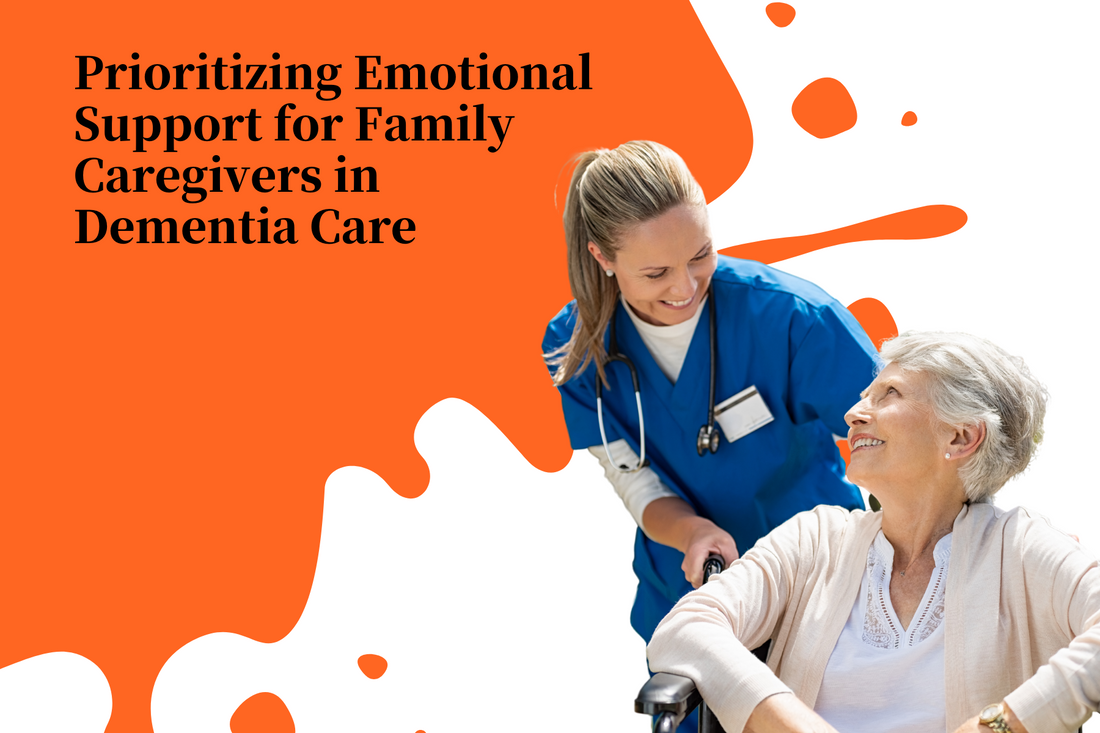Prioritizing Emotional Support for Family Caregivers in Dementia Care
31 Mar 2023
0 Comments
Caregivers can be classified as family caregivers or occupational caregivers. As the elderly with dementia progress, their cognitive function declines and their ability to live independently decreases. This leads to an increased demand for direct care and psychological support for caregivers. Unfortunately, caregivers' personal emotional well-being is often overlooked despite the emphasis on providing quality care for the elderly.
Personal emotional support is crucial for family caregivers for several reasons:
1. Caregivers' emotions should be acknowledged. Data shows that caregivers providing care for elderly individuals with cognitive impairments experience higher levels of psychological stress compared to other types of caregivers.
2. Maintaining a positive attitude can help improve caregivers' sense of personal agency, leading to better quality and efficiency of care.
3. Negative emotions can directly affect the mental health of elderly individuals with dementia, which can worsen their symptoms and accelerate the progression of the disease.
To address these issues, here are some tips for family caregivers:
1. Create a shift system. When possible, share caregiving responsibilities with other close family members to reduce personal pressure.
2. Manage empathy levels. If empathy for the elderly's emotions starts to seriously affect personal mood, it's essential to divert attention and stabilize emotions to provide better care.
3. Prepare for the worst. Recognize that the elderly's condition is likely to deteriorate over time, and accepting this can help manage caregiver stress.
4. Prioritize personal breaks. Caring for elderly individuals with dementia is a long and challenging process. Protecting personal physical and mental health is crucial.
5. Connect with other caregivers in similar situations. Building a supportive network can help caregivers feel less isolated, and sharing daily care experiences and encouragement can be beneficial.
6. Occasionally utilize respite care. Taking a day off to relax can help improve personal well-being, which will benefit both the caregiver and the elderly.
7. Consider all aspects of caregiving. Family caregivers have multiple roles and responsibilities in the home. It's essential to consider personal health and that of other family members. If personal pressure becomes too much, seeking high-quality nursing care may be an option if economically feasible.
By following these tips, family caregivers can improve their emotional well-being and provide better care for their loved ones with dementia.
Personal emotional support is crucial for family caregivers for several reasons:
1. Caregivers' emotions should be acknowledged. Data shows that caregivers providing care for elderly individuals with cognitive impairments experience higher levels of psychological stress compared to other types of caregivers.
2. Maintaining a positive attitude can help improve caregivers' sense of personal agency, leading to better quality and efficiency of care.
3. Negative emotions can directly affect the mental health of elderly individuals with dementia, which can worsen their symptoms and accelerate the progression of the disease.
To address these issues, here are some tips for family caregivers:
1. Create a shift system. When possible, share caregiving responsibilities with other close family members to reduce personal pressure.
2. Manage empathy levels. If empathy for the elderly's emotions starts to seriously affect personal mood, it's essential to divert attention and stabilize emotions to provide better care.
3. Prepare for the worst. Recognize that the elderly's condition is likely to deteriorate over time, and accepting this can help manage caregiver stress.
4. Prioritize personal breaks. Caring for elderly individuals with dementia is a long and challenging process. Protecting personal physical and mental health is crucial.
5. Connect with other caregivers in similar situations. Building a supportive network can help caregivers feel less isolated, and sharing daily care experiences and encouragement can be beneficial.
6. Occasionally utilize respite care. Taking a day off to relax can help improve personal well-being, which will benefit both the caregiver and the elderly.
7. Consider all aspects of caregiving. Family caregivers have multiple roles and responsibilities in the home. It's essential to consider personal health and that of other family members. If personal pressure becomes too much, seeking high-quality nursing care may be an option if economically feasible.
By following these tips, family caregivers can improve their emotional well-being and provide better care for their loved ones with dementia.
Tags:


